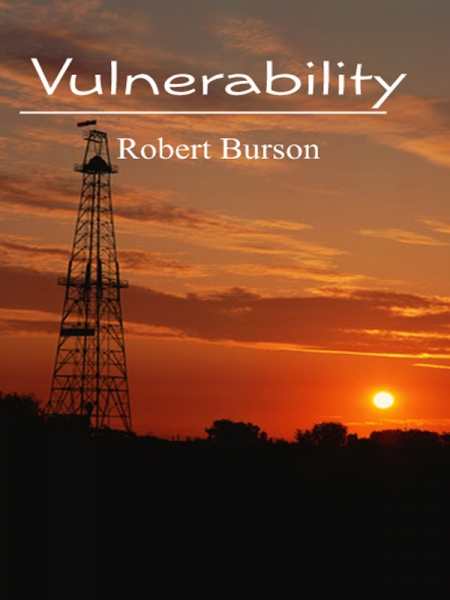It looks like you've stumbled upon a page meant to be read by our code instead of viewed directly. You're probably looking for this page.
Vulnerability
In the days after 9/11, many reporters wrote stories about where Al Qaeda might strike next: buildings, monuments, infrastructure. In the intervening years, it has become clear that high-profile sites are not the only vulnerable targets. A combination of events could create vulnerabilities that allow the unthinkable to happen. This is what Robert Burson’s Vulnerability explores: a world where an inadvertent union in the Middle East can almost take the world to war.
Hakan Kanuni dreams of uniting the Muslim countries. When the president of Iraq is assassinated, he convinces Iran’s leader to invade Iraq and merge the two nations. With a new league of nations in place, Kanuni sets up his nephew Kemal Kanuni, a savvy, young British businessman, as his heir apparent. But Kemal is power hungry and sees the league as a chance for a greater destiny.
In response to these events, officials at the US Department of Defense send Mike Williams, a national security advisor, to investigate Kemal. As he travels the globe, Williams meets Kate O’Hara, a reporter in the London office of the Washington Post, who is also investigating Kemal. Can Williams and O’Hara uncover the truth in time? Or, are Kemal and a mysterious woman named Melina about to change the world?
Burson weaves his tale at a rapid-fire pace, with the action cutting back and forth between different points of view. Most chapters are no more than a page long, and Burson easily moves the story from London to Washington to Saudi Arabia.
The problem with this pace is that Burson does more telling than showing. Scenes unfold through almost pure narration, and plot points are delivered in blocks of dialogue. For example, Burson writes, “Not only was Hakim not of royal heritage, he wasn’t even completely Arab. His mother’s family was Turkish. They had come as traders when the Ottoman Empire ruled the Arabian Peninsula. After Saudi Arabia gained its independence following World War I most of the family returned home. However, his great-grandmother had fallen in love and chose to remain behind to be with the man whom she would eventually marry. It had not been easy for them, as the Saudis did not take kindly to Turks. Indeed it had taken a couple of generations for the family to be accepted into Saudi society.”
Nonetheless, Burson’s grasp of the political and economic facts of his story’s time and setting gives the novel an authentic feel. Readers learn how oil futures might impact the New York Mercantile Exchange, the ins and outs of politics between Shiite Muslims, how Stalin and Hitler fought over Kurdistan during World War II, and much more.
Burson’s story of a threatening situation in a currently volatile part of the world makes this thriller both timely and compelling.
Reviewed by
Katerie Prior
Disclosure: This article is not an endorsement, but a review. The publisher of this book provided free copies of the book and paid a small fee to have their book reviewed by a professional reviewer. Foreword Reviews and Clarion Reviews make no guarantee that the publisher will receive a positive review. Foreword Magazine, Inc. is disclosing this in accordance with the Federal Trade Commission’s 16 CFR, Part 255.
